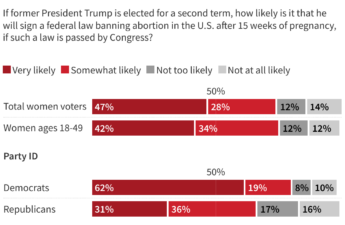Category: Health Policy
Massive cuts to Health and Human Services’ workforce signal a dramatic shift in US health policy
Combined with previous reductions, these cuts may achieve some limited short-term savings. However, the proposed changes dramatically alter U.S. health policy and research, and they may endanger important benefits and protections for many Americans. They may also have severe consequences for scientific progress. And as some policy experts have suggested, the poorly targeted cuts may increase inefficiencies and waste down the line.
Doctor shortages have hobbled health care for decades − and the trend could be worsening
For decades, experts have warned of an impending decline in the physician workforce. Now, Americans across all regions, specialties and socioeconomic backgrounds are experiencing that decline firsthand or personally.
NIH funding cuts will hit red states, rural areas and underserved communities the hardest
The cuts will be detrimental to the entire country, they will disproportionately hurt states that traditionally have received very low levels of NIH funding, the majority of which are red states that supported Trump’s election to a second term. This is because such states lack resources to develop advanced research infrastructure necessary to compete nationally for NIH funding.
CDC layoffs strike deeply at its ability to respond to the current flu, norovirus and measles outbreaks and other public health emergencies
The CDC began as a small branch of the U.S. Public Health Service in 1946 as an outgrowth of successes fighting malaria in southern states during World War II and before. Its founder, Dr. Joseph W. Mountin, envisioned that it would come to serve all states, addressing all communicable diseases. Since that time, the CDC has evolved into the nation’s premier public health organization, leveraging both clinical and population health sciences to prevent and mitigate challenges to the nation’s health.
Washington AG sues over Trump order seeking to restrict care for trans youth
Minnesota and Oregon joined Washington in the lawsuit filed in U.S. District Court in Seattle. Three doctors are also plaintiffs in the case, anonymously representing themselves and their young patients.
Reading the Tea Leaves for Trump-Era Health Policy
A host of experts weigh in on how Trump’s early directives will translate into health policy and legislation. His early health moves signal intent to erase Biden’s legacy. What’s next is unclear.
Race and place can contribute to shorter lives, research suggests
American Indians in Western and Midwestern states have the shortest life expectancy as of 2021, 63.6 years. That’s more than 20 years shorter than Asian Americans nationwide, who can expect to live to 84, according to a recent study by the Institute for Health Metrics and Evaluation at the University of Washington.
Maternal death reviews get political as state officials intrude
Every state has a committee of medical and public health experts tasked with investigating deaths that occur during and after pregnancy. But as data paints a clearer picture of the impact that state policies such as abortion bans and Medicaid expansion can have on maternal health, leaders in some states are rushing to limit their review committee’s work — or halt it altogether.
5 of the most frustrating health insurer tactics and why they exist
Research shows that 1 in 3 Americans seeking care report delaying or forgoing treatment because of the “administrative burdens” of dealing with health insurance and the health care system, creating additional barriers beyond costs.
Response to CEO killing reveals antipathy toward health insurers − but entire patchwork system is to blame for ill feeling
As the public reaction to the killing of UnitedHealthcare CEO Brian Thompson has made clear, many Americans are perhaps most unhappy with their health insurers. Indeed, just 31% of Americans have a favorable view of the health insurance industry, according to a 2024 survey.
Does Fluoride Cause Cancer, IQ Loss, and More? Fact-Checking Robert F. Kennedy Jr.’s Claims
Kennedy, who was tapped last week by Trump to lead the Department of Health and Human Services, called fluoride an “industrial waste” and linked it to cancer and other diseases and disorders while campaigning for Trump.
Scientists Fear What’s Next for Public Health if RFK Jr. Is Allowed To ‘Go Wild’
Should Kennedy win Senate confirmation, his critics say a radical antiestablishment medical movement with roots in past centuries would take power, threatening the achievements of a science-based public health order painstakingly built since World War II.
As Nuns Disappear, Many Catholic Hospitals Look More Like Megacorporations
The Catholic Church still governs the care that can be delivered to millions in those hospitals each year, using religious directives to ban abortions and limit contraceptives, in vitro fertilization, and medical aid in dying. But over time, that focus on margins led the hospitals to transform into behemoths that operate for-profit subsidiaries and pay their executives millions. These institutions, some of which are for-profit companies, now look more like other megacorporations than like the charities for the destitute of yesteryear.
Health insurance premiums to rise for WA small businesses by about 12%
This marks the highest increase for small employers in the last decade.
Abortion Emerges as Most Important Election Issue for Young Women, Poll Finds
Nearly 4 in 10 women under 30 surveyed in September and early October told pollsters that abortion is the most important issue to their vote. Just 20% named abortion as their top issue when KFF conducted a similar survey in late May and early June.













